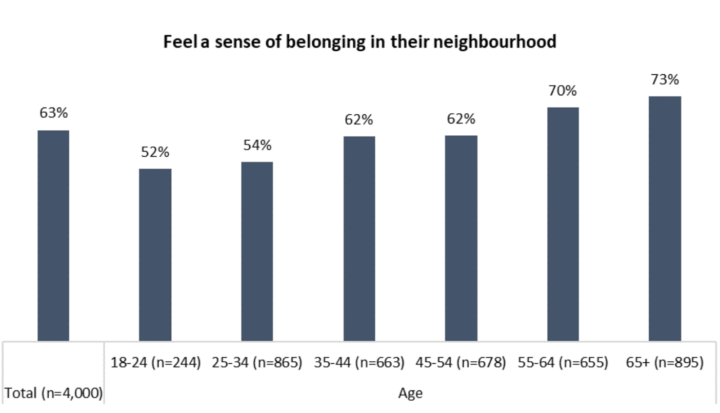
Community Trends
How have community connections changed after two years of pandemic-related challenges? Angus Reid Institute just released a new study which suggests belonging and connection are splintered along generational lines.
Older residents are drawing strength and comfort from their place-based communities, whereas younger people are finding a sense of community rooted not in a physical space, but rather defined by ethnic or experience-based connections.
One notable difference is that 70% of Canadians over the age of 54 say they feel a sense of belonging within their neighbourhood. However, for those under 35, only 54% say this.

Why This Matters
Overall, 78% of Canadians say their main reason for seeing and talking with their neighbours less is due to COVID-19 and pandemic restrictions.
As younger Canadians experience less of a sense of belonging within their place-based communities, they are also more likely to say they simply don’t want to talk to anyone. This is a need Christian non-profit organizations can help fulfill by creating online or in-person communities with the foundation of the Truth of the gospel.
Next Step
Read the full study by Angus Reid to get a fuller sense of the impact COVID-19-related challenges has had on Canadians’ sense of belonging.